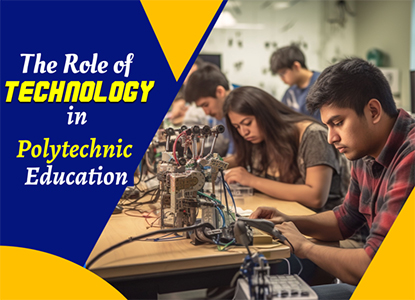
The Role of Polytechnic Institutes in Skill Development and Vocational Training
Polytechnic institutes play a crucial role in shaping India’s skilled workforce by providing practical education, hands-on training, and industry-relevant knowledge. They bridge the gap between academic learning and employable skills, empowering students for technical careers.
- Practical Hands-On Training: Polytechnic institutes emphasize laboratory work, workshops, and real-world projects, allowing students to apply theoretical knowledge practically, which enhances problem-solving skills and technical competence.
- Industry-Relevant Curriculum: Courses are designed in consultation with industries, ensuring students gain skills that match current market requirements, making them job-ready immediately after graduation.
- Shorter Duration Programs: Diploma courses are usually 2–3 years long, providing students with faster entry into the workforce compared to traditional degree programs, accelerating career growth.
- Affordable Education: Polytechnic institutes offer cost-effective education compared to conventional engineering degrees, making technical training accessible to a wider population without financial burden.
- Vocational and Skill Development Focus: Programs emphasize vocational skills such as welding, carpentry, electrical work, and computer applications, preparing students for practical roles in industries.
- Apprenticeships and Industry Exposure: Many institutes collaborate with industries to provide internships and apprenticeships, allowing students to gain real-world experience and understand workplace dynamics.
- Entrepreneurship Opportunities: Students acquire technical and managerial skills that enable them to start small businesses or work as freelancers in their chosen trade.








